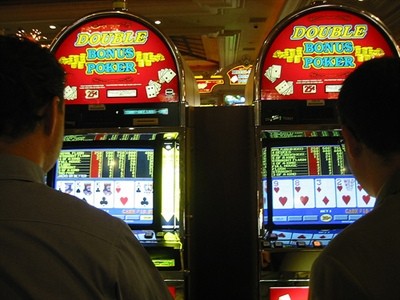New Gaming Courts in Nevada Offer Treatment to Gamblers
Nevada joins states such as New York and Louisiana in establishing specialist gaming courts that offer treatment to gamblers as an alternative to jail.
The signing in to law of a new bill in Nevada paves the way for gaming courts in what is the gambling capital of the US, and acknowledges the profound impact gambling addiction has on society. It also provides gamblers with an opportunity to receive understanding rather than wholesale blame.
Problem gambling is particularly acute in Nevada, with research back in 2002 suggesting close to one in 15 adults in the territory have an addiction.
The state’s first problem gambling funding bill, back in 2005, was a cursory nod to the issue, establishing a fund of $2.5 million from slot machine taxes to assist in the prevention and treatment of gambling. The bill passed this week was a significant leap forward.
Judges now have the option to send convicts they believe to be problem gamblers for analysis by a mental health professional. If it is certified that they have a problem with gambling, their sentence can be deferred and a course of treatment prescribed on an outpatient basis.
This level of supervision, which may also include a period of community service, can last anything from 1 to 3 years. At the end of it, a prison sentence could be imposed or, if the gambler has been treated successfully and the conditions of the judgment met, the conviction set aside.
Certain types of criminal, including domestic and child abusers, would be exempt from consideration for the gambling diversion program. A late amendment to the bill also specifies restitution to any victim of theft where the perpetrator is identified as a gambler.
The bill certainly seems to have unified unlikely bed-fellows, whether Democrats or Republicans, gaming companies or treatment counselors. ‘If you don’t create a problem gambling court, you do nothing to address the underlying problem,’ insists Alan Feldman, MGM Mirage’s SVP of Public Affairs and a board member of the National Center for Responsible Gaming, a research group funded by the industry.
Gambling courts work on the principle that treatment of the addiction will reduce recidivism in a way that the deterrent of incarceration does not, offering benefits to society by reducing crime levels. Modeled on ‘therapy’ or ‘diversion’ courts established specifically for alcoholics or drug abusers, the first gambling treatment court opened as recently as 2001, in New York state.
They are still a rarity, but evidence seems to suggest they work. Harold Albright, Justice of the Peace in Reno, helped galvanize support for the Nevada bill, and is responsible for a misdemeanor drug court that has seen recidivism plummet to less than 15 percent. He said, ‘The success of these courts over the last decade has been proven.’


